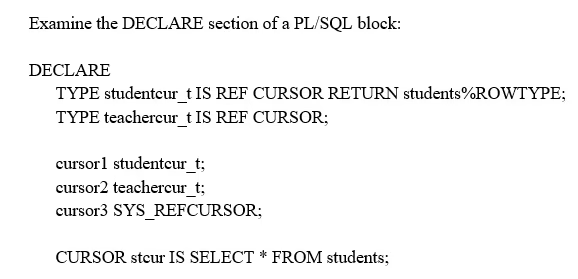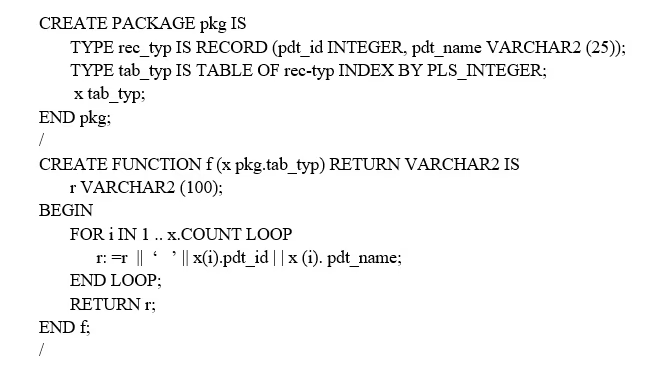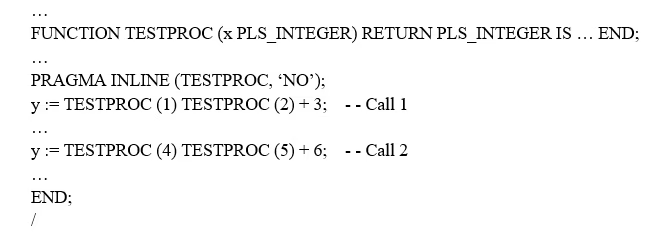Oracle Database 12c Advanced PLSQL
Here you have the best Oracle 1z0-148 practice exam questions
- You have 74 total questions to study from
- Each page has 5 questions, making a total of 15 pages
- You can navigate through the pages using the buttons at the bottom
- This questions were last updated on July 2, 2025
- This site is not affiliated with or endorsed by Oracle.


